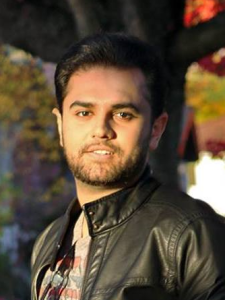Furqan Waleed is an immigrant settler who moved to the xʷməθkʷəy̓əm (Musqueam) territory, currently called Vancouver and the surrounding areas, in 2013. He is a recent graduate from Simon Fraser University in the Molecular Biology and Biochemistry program. Furqan’s skills are complemented by strong ties to the LGBT2SQ BIPOC communities most affected by HIV and HCV, alongside his experience working with the youth-led HIV/HCV organization YouthCO as a program manager. He understands how stigma, oppression, and marginalization shape the impact of violence towards people living with HIV/HCV, appreciates the effects of social determinants of health, and is committed to meaningfully engaging with the community and building relationships that honour our unique histories and journeys in healing.

What kind of impact do you hope your work has on the “real world”?
Through the work that I do with the HIV and HCV community I aspire to live in a world where people can say HIV out loud and not experience the stigma that comes with it. I aspire to live in the world where TRIPS laws don’t dictate who gets to have access to advance medication. I hope that my work gets our leaders to support us and show up for us with an action-oriented plan to help end the severe forms of stigma and inequity BIPOC folks face within the healthcare system.
What’s an exciting thing you are working on now?
I have been selected as the keynote speaker for 2022 UNAIDS PCB’S 50th thematic Segment and am currently working on what I will be contributing to this responsibility.
How do you engage the community in your work?
Interrupting the stigma, oppression, and marginalization that shapes the impact of violence towards QTBIPOC folks living with HIV/HCV and addressing underlying social determinants of health, informs my approach to program delivery and community engagement. My understanding of these realities also influences my commitment to meaningfully engaging with the community and building relationships that honour our unique histories and journeys in healing.
If you were to write a book about work life, what would its title be?
For the peers and by the peers
Do you prefer sweet or salty foods?
Salty foods. Any Pakistani salty food item
